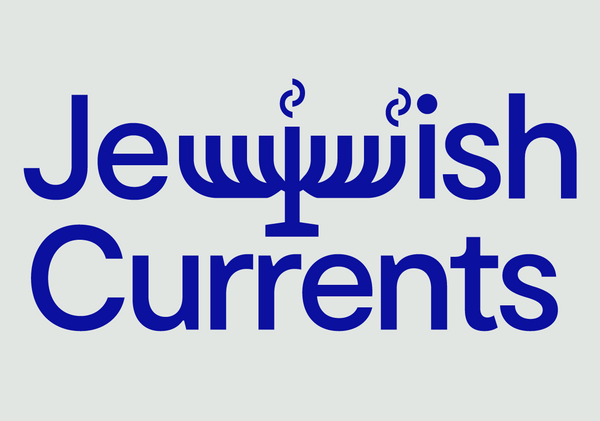Newsletter
Dec
18
2022

Chag Urim Sameach! This year we are celebrating Hanukkah by introducing our readers to a new member of our incredible staff each night as we reflect on the work we’re most proud of from 2022.
We believe something amazing is happening here at Jewish Currents, but we can’t make miracles without your help. We don’t depend on venture capital to fund our work and we don’t accept paid advertising. Rather, it’s your engagement and support that makes the labor of our writers, editors, artists, and fact-checkers possible, and allows us to continue exploring the questions that are most vital to today’s Jewish communities. We’re excited to shine a light on the people behind Jewish Currents, to share with you exactly who and what you are supporting when you read, listen, donate, and subscribe to our magazine.

My name is Mari Cohen, and I’m Jewish Currents’s associate editor, a position that has me wearing several hats, including reporter, writer, and editor.
This year, I had the pleasure of editing two pieces that engaged deeply with American Jewish history. In February, we published Richard Kreitner’s incisive review of a new biography of Judah Benjamin, the infamous Jewish politician who served as Confederate secretary of state. Kreitner compellingly illuminates Benjamin’s background—including how his Jewishness sometimes hampered, but never entirely thwarted his ascendance among the slaveholding elite—even as he calls into question the usefulness of retelling his narrative today. While Benjamin has come to serve as the most prominent symbol of American Jewish collusion with slavery, Kreitner cautions that focusing too much on an idiosyncratic individual misses the more significant structural story about how slavery, in securing a racial order premised on anti-Blackness as the defining feature, helped Jews gain the advantages of whiteness.
Allen Lipson’s piece on the centrist political project behind the founding of the Conservative Judaism is a reminder of the historical significance of the oft-forgotten early 20th-century encounter between unassimilated, working class Eastern European Jewish immigrants and established, well-to-do German Jewish communities in the US. Lipson’s intrepid research demonstrates how Jewish Theological Seminary, the “intellectual wellspring” of Conservative Judaism, was shaped by the institution’s major German Jewish donors with the explicit intention of neutering new immigrants’ political radicalism and religious fervor. Lipson argues that this history endures in the Conservative movement’s current commitment to apoliticism and its rigid, decorous style of worship. It’s a helpful intervention at a time when the movement is seeing new stirrings of political dissent, including rabbis inclined to weigh in against right-wing policy and rabbinical students speaking out against American Jewish support for Israeli violence. “The question now,” Lipson suggests, “is just how far opponents of the movement’s centrist approach can push from within a structure explicitly founded to counter and contain them.” I’m grateful that Jewish Currents exists as a forum for the rigorous historical investigation offered by Kreitner’s and Lipson’s pieces—and I believe this approach is key to helping us understand American Jewish life today.
To continue publishing bold, challenging pieces like the ones Mari mentioned above, we rely on our community of supporters and subscribers. Please consider sustaining our work by making a donation or subscribing to Jewish Currents today. Our subscriptions also make great gifts!
As a small token of our appreciation for our community of readers and contributors, we are also offering newsletter subscribers 36% off of anything in our online store if you use the code GELT2022. Shop Jewish Currents gifts—like our tote bags, back issues, and special editions—for your friends and family (or yourself!).
Thank you for your continued support, and we wish you a relaxing and peaceful holiday season, no matter what you celebrate.